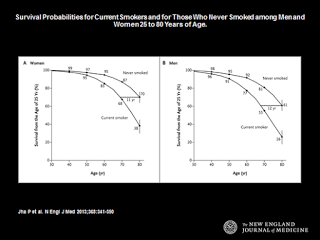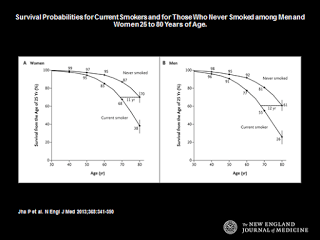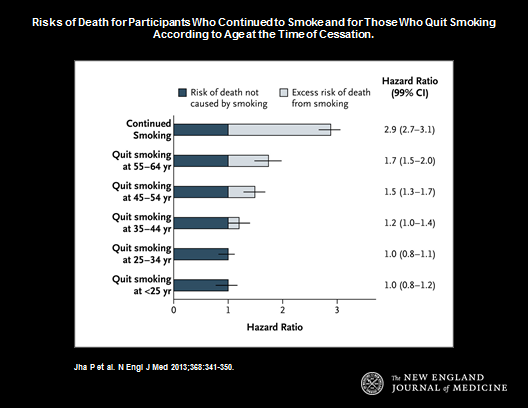We all know that smoking is bad for our health. But how bad is bad? The answer is very bad. It takes a decade off of life.
Death rates are about 3 times higher for smokers than nonsmokers. The chance that a young person will live to age 80 is about 70% for nonsmokers but about 35% for smokers. Stated differently, a smoker loses about 11(women) to 12 (men) years of life compared to nonsmokers.
Now that women have been smoking for long periods of time, their risks match those of men who smoke. “Women who smoke like men die like men who smoke.” Women’s relative risk of developing and dying from lung cancer (compared to nonsmoking women) is about 25, same as for men. For chronic lung disease, the relative risks are 23 and 25 for women and men, respectively. For ischemic heart disease the relative risks are 2.9 and 2.5 and for stroke they are 2.1 and 1.9.
These are the results presented from two studies of very large populations of Americans published January 24, 2013 by the New England Journal of Medicine, one by Prabhat Jha and colleaguesand another by Michael Thun and colleagues. Each analyzed different populations but arrived at essentially the same conclusions.
Alarming as these numbers appear, there is hope. Those who quit smoking will gain back substantial years of life, with more years gained the sooner one ceases smoking. For example, in Jha’s analysis, those who quit in the age range 25-34 reverted almost to the nonsmoker status – they gained back 10 years of life. Stopping between 35-44 years of age gained 9 years and between 45-54 years of age the gain was 6 years.
It is never too late to quit and the benefits are clearly substantial.








